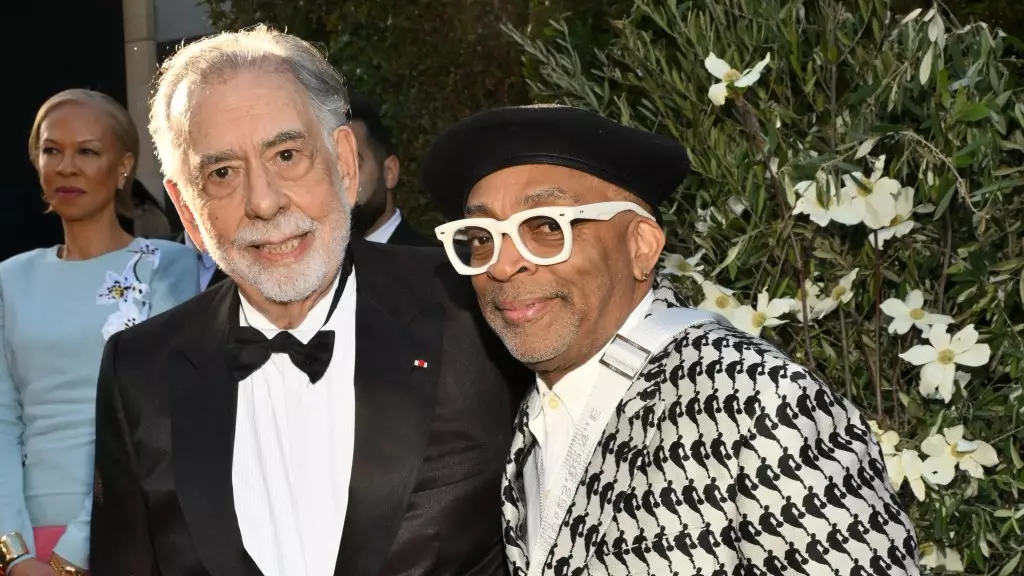At a recent tribute honoring Francis Ford Coppola at the AFI Life Achievement Award ceremony, filmmaker Spike Lee showcased the profound impact that Coppola has had on a generation of filmmakers. While celebrating Coppola’s remarkable career at the Dolby Theatre in Los Angeles, Lee reminisced about witnessing the legendary war film “Apocalypse Now” during its premiere in 1979. His vivid recollection—holding onto the original ticket stub years later—sheds light on the lasting impression that Coppola’s work has made on audiences and aspiring filmmakers alike. It’s moments like these that remind us of the enchantment cinema can wield, drawing viewers into a world that resonates with authenticity and artistic mastery.
Cinematherapy: The Power of Film Experiences
Lee’s emotional recounting of experiencing “Apocalypse Now” serves as a powerful testament to how pivotal films can alter perspectives. The visceral imagery and unconventional storytelling showcased in Coppola’s work introduced audiences to artistic depths that many had never encountered. With helicopters soaring onto the screen, Lee’s reaction—“where the fuck?”—echoes the shared astonishment and wonder that many viewers experienced. This kind of connection between filmmaker and audience is rare and speaks to Coppola’s genius in crafting narratives that transcend the screen. Cultivating such ardor for film is not just about visual representation; it’s about creating an emotional journey that invites the audience to reflect on broader themes of the human condition.
The Legacy of a Visionary
The tribute to Coppola was not merely a celebration of achievements, but also an assemblage of numerous cinematic titans, including Steven Spielberg, George Lucas, and actors like Al Pacino and Robert De Niro. Their presence underscores not only the respect afforded to Coppola but also the shared experiences that filmmakers have under his influence. Such gatherings highlight the interconnectedness of the film community—where creativity thrives through collaboration and inspiration drawn from one another’s work. Coppola’s films, particularly “The Godfather” saga, have left an indelible mark on the cinematic landscape, promoting storytelling that interweaves complex characters, intricate plots, and overarching moral dilemmas.
A Journey Through Cinema’s Rich Tapestry
As Lee expressed gratitude for Coppola’s mentorship, including a memorable screening of “The Cotton Club,” it raises the conversation about the importance of nurturing upcoming talent. Coppola’s willingness to support and engage with newer filmmakers reflects a commitment to passing down the art of storytelling—a beacon of hope that inspires a new generation. The life’s work of Coppola stands alongside a selection of cinematic masterpieces, each showcasing how film can navigate the choppy waters of societal change and influence cultural dialogue. His prolific output—from “Patton” to “Bram Stoker’s Dracula”—underscores the versatility and transformative power of cinema.
Celebrating a Cinematic Giant
Honoring Francis Ford Coppola also reinforces the value of legacy in filmmaking. Being recognized by the American Film Institute for a lifetime of achievements means that his contributions have been monumental, transcending time and maintaining relevance in new cultural contexts. With six Academy Awards under his belt, Coppola’s films are not only celebrated on lists but enshrined in the hearts of those who turn to cinema for inspiration and introspection. In a time where film might face the pressures of commercialism, celebrating such visionary artists serves as a reminder of the artistry that cinema can achieve.
